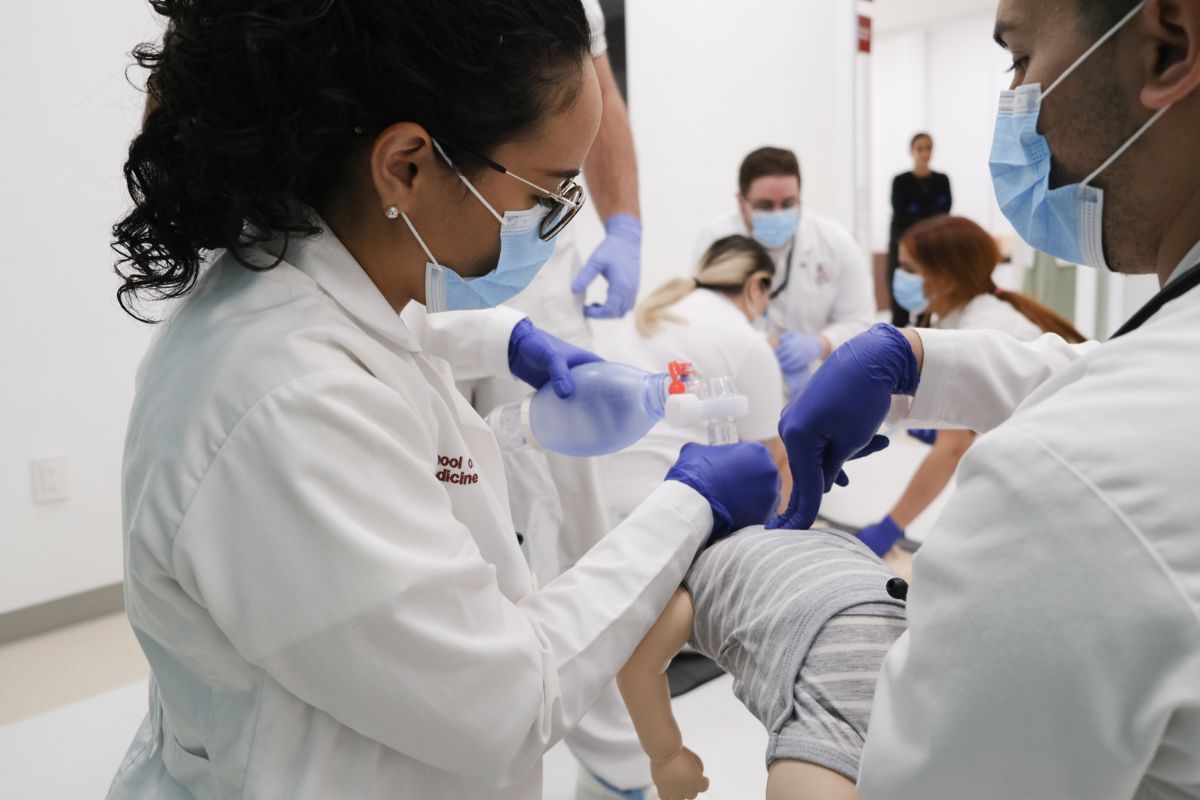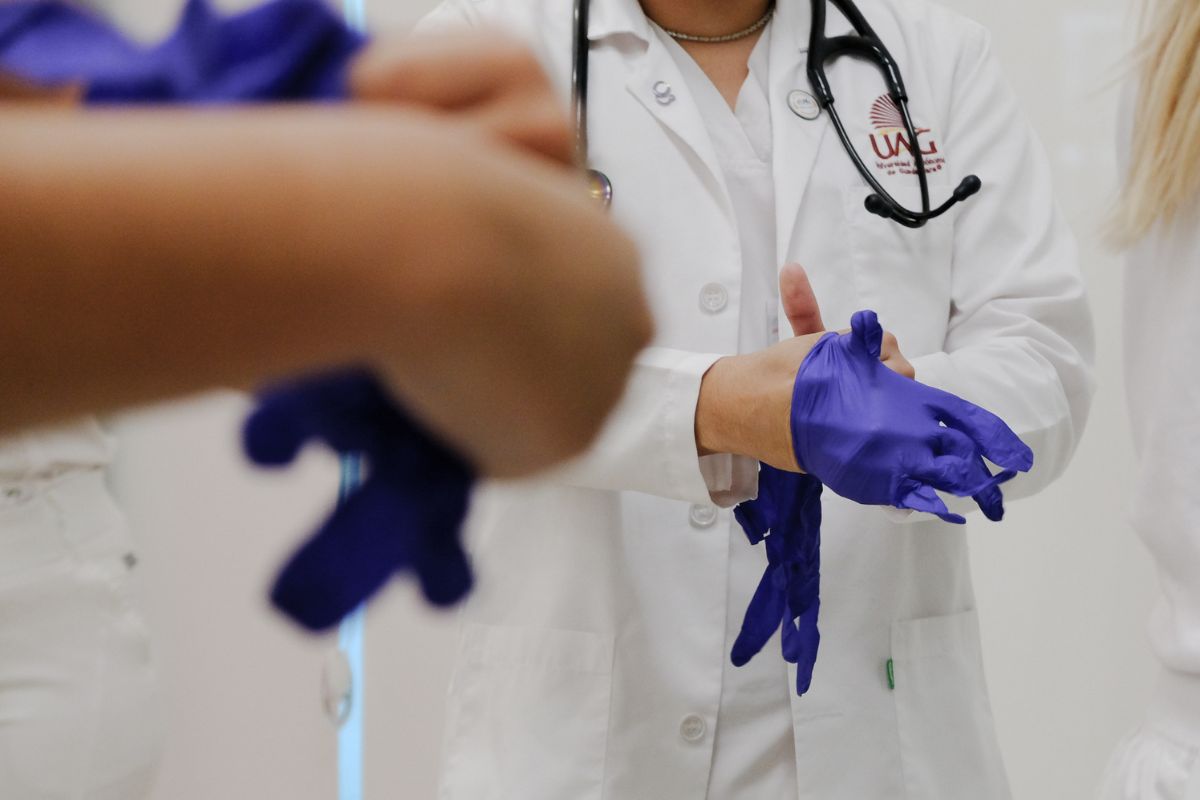



Universidad Autonoma de Guadalajara School of Medicine is a wonderful place to begin the journey of medical education. But what does a medical education entail? UAG School of Medicine has created a wonderful MD program; one that can be completed in just four years.
To learn more about this program, let's first delve into what a medical education can mean. What will you learn? What will it take from you mentally? Here’s what it means to obtain a medical degree.
A medical education encapsulates the proper training and life experiences through learning that are necessary for one to become a healthcare professional. In the case of qualified physicians, this type of training and experience involves an even more intensive level of study, a more focused learning experience, and a more comprehensive type of training.
Here are some of the steps to obtaining a medical degree.
Pre-medical education
This means a bachelor’s degree with a strong science and math background. However, some medical schools allow for a broader spectrum of majors to enter their program.
MCAT
The Medical College Admissions Test is a very challenging exam that tests all applicants on their knowledge of science and math before they enter medical school.
Medical School
This is the step that is taken for a student to become knowledgeable in the ways of medicine.
Clinical Rotations
Clinical rotations are part of the process. This refers to a time when medical students shadow doctors in order to learn exactly how medicine is practiced. These occur during the third and fourth years of graduate school.
USMLE
The United States Medical Licensing Examination is taken at the end of medical school before a residency. All students in the US must pass this examination in order to practice medicine independently.
Residency
A residency follows the USMLE and is a time during which students have the opportunity to practice their skills in a medical facility with some supervision. A residency lasts anywhere from three to seven years.
Fellowship (optional)
Some medical students choose to attend a fellowship when the time is right and the residency has come to an end. This allows them to hone their skills and focus more on specialty fields.
CME (optional)
Some physicians choose Continuing Medical Education. This is something that is available to all physicians and includes taking classes, attending workshops, and more.

MD Program
The MD program at UAG is top-notch and can be completed in just four years. We are a fully accredited organization that provides the best medical education to our students. We want our graduates to be the most qualified and most skilled.
At the Universidad Autonoma de Guadalajara, we incorporate eight components into our medical education program. By the time our students graduate, we fully expect them to be proficient in
Medical Knowledge
Interpersonal and Communication Skills
Interdisciplinary Collaboration
Patient Care
Systems-Based Practice
Practice-Based Learning and Improvements
Ethics and Professionalism
Community Engagement
At UAG we believe that focusing on these 8 points will create qualified physicians who are well-rounded and personable, as well as extremely proficient in their field.
The four-year MD program consists of:
Year One-Semester 1 and 2 at UAG
Year Two-Semesters 3 and 4 at UAG
Year Three- Off-campus work and clinical clerkship
Year Four-Off-campus work and electives
Curriculum
At UAG the curriculum is very straightforward. Here is what is included in the medical school curriculum.
First Semester
Fundamentals of Medicine
Anatomy, Physiology, Embryology, Biochemistry, Histology, Pathology, Genetics, Immunology, and Molecular Biology.
Cardiovascular/Pulmonary/Renal Systems
Anatomy, Embryology, Biochemistry, Histology, Pathology, and Physiology
Second Semester
Gastrointestinal/Endocrine/Reproductive Systems
This includes Anatomy, Embryology, Biochemistry, Histology, Pathology, and Physiology.
Musculoskeletal Medicine
Anatomy, Biochemistry, Histology, Pathology, Physiology, and Pharmacology.
Neuroscience
Neuroscience, Neuroanatomy, Neurophysiology, Pharmacology, and Clinical Neurology
Third Semester
Fundamentals of Medicine II
Anatomy, Biochemistry, Histology, Pathology, Physiology, Pharmacology, Immunology, and Microbiology.
Cardiovascular/Respiratory/Renal Systems II
Anatomy, Biochemistry, Histology, Pathology, Physiology, Pharmacology, Immunology, Microbiology
Neuroscience
Pathology, Psychiatry, Microbiology, and Pharmacology.
Medical Ethics/Humanistic Medicine/Medical Psychology
Medical Ethics Principles, Medical Professionalism, Informed Consent
Fourth Semester
Gastrointestinal, Endocrine, Reproductive Systems II
Anatomy, Biochemistry, Histology, Pathology, Physiology, Pharmacology, Immunology, Microbiology
Hematologic/Integumentary Systems
Anatomy, Biochemistry, Histology, Pathology, Pharmacology, Immunology, Microbiology
Research Methodology
Research Methodology, Epidemiology, Biostatistics, Preventive Medicine, Public Health
Fifth and Sixth Semester
Family Medicine, Internal Medicine, Obstetrics and Gynecology, Pediatrics, Surgery, Emergency Medicine, Psychiatry
Seventh and Eighth Semesters
Endocrinology, Infectious Diseases, Neurology, Dermatology, Clinical Nutrition, Ophthalmology, Otorhinolaryngology, Orthopedic Surgery, Rheumatology, Urology, Hematology, Oncology, Pain Medicine, Radiology, Geriatric Medicine, Anesthesiology
Consistent Study Throughout
Clinical Skills Development Program is a course that continues throughout all of medical school at UAG.
Universidad Autonoma de Guadalajara-School of Medicine
If you seek to pursue a medical education, Universidad Autonoma de Guadalajara could be the medical school for you. UAG is meant to be a school for Americans who wish to practice medicine in the United States. Universidad Autonoma de Guadalajara offers the highest quality training to give their medical students every chance at success. Students who study at the Universidad de Guadalajara have the opportunity to study the Spanish language and typically become fluent throughout their course of study. The Universidad Autonoma de Guadalajara can provide its students the opportunity to live abroad, study medicine, and make their career dreams come true. For more information, visit our website. Or call us toll-free at (833) 220-7645. Ready to apply? Applications can be found at https://uag.edu/application-process. For more information, please email us at admissions@uag.edu.